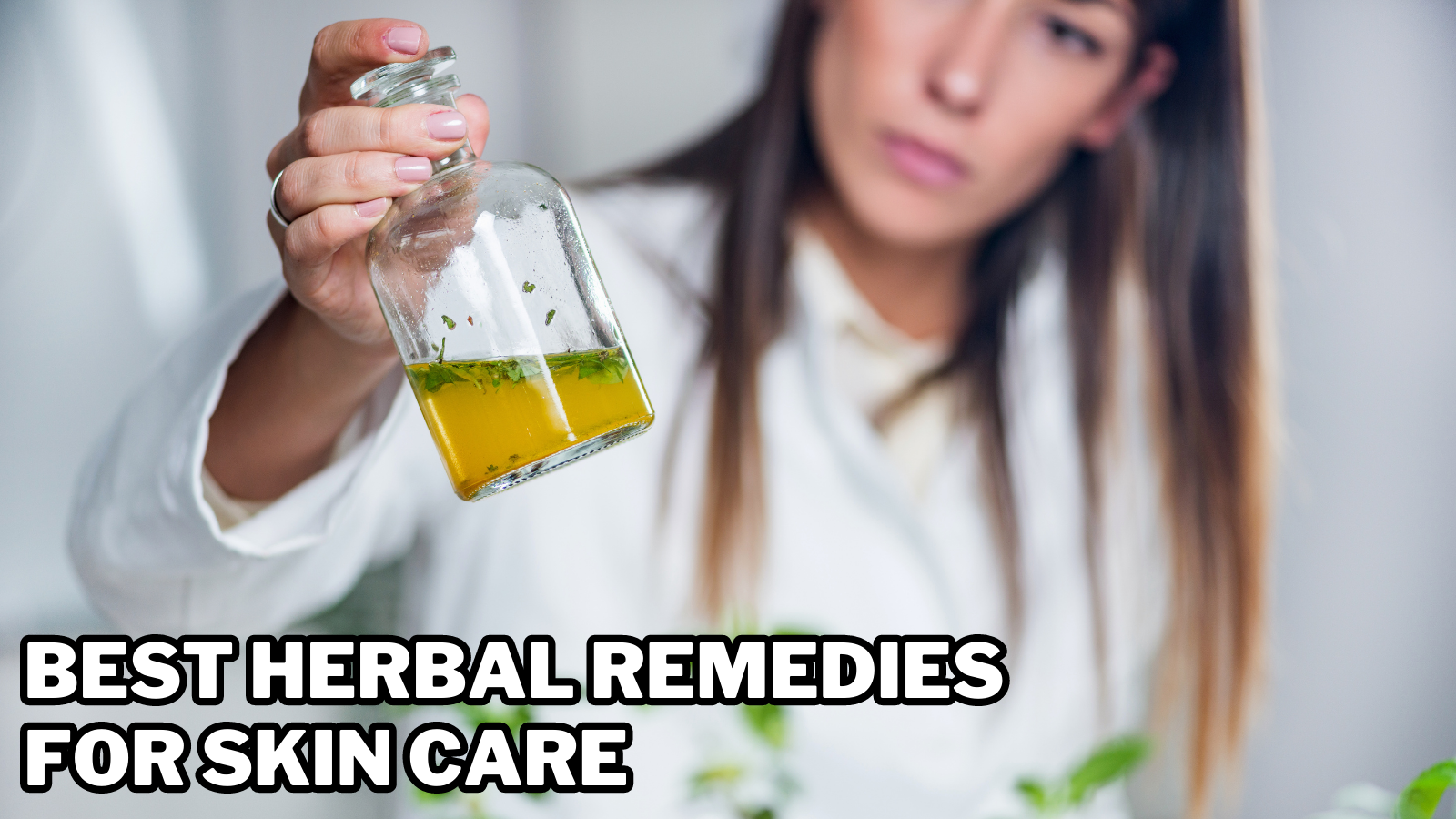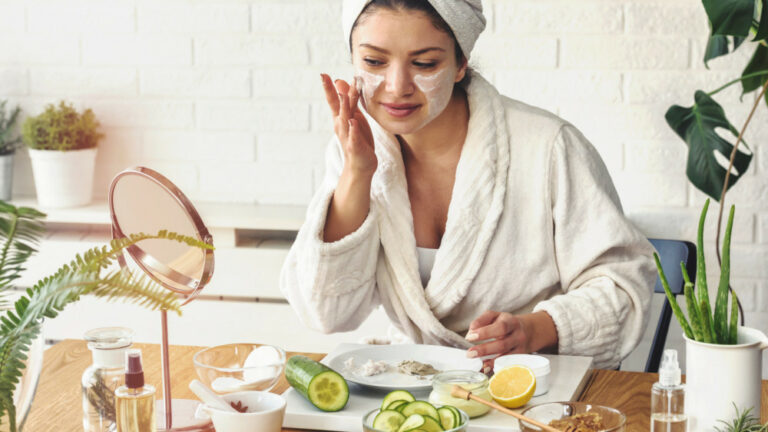Best Herbal Remedies For Skin Care
Best Herbal Remedies For Skin Care
The biggest organ you have is your skin. Thus, you should take good care of it. A healthy and vibrant person is often seen to have glowing skin.
The opposite is true. Dull or dry skin can make you feel less than your best. Anyone can employ cures for glowing skin to combat dryness and dullness.
UV rays, alcohol use, smoking addiction, nutritional issues, lack of sleep, and other work-related situations are some common environmental and lifestyle factors that can leave our skin looking lifeless or dry.
While avoiding all of the abovementioned variables can be difficult, we can ensure that our skin appears beautiful, healthy, young, and shining by incorporating homemade and natural solutions into our skincare routine.
This article explores herbal remedies for skin care and Mother Nature's finest botanical allies.
Whether you seek relief from dryness, blemishes, or signs of aging or desire a rejuvenating and vibrant complexion, we will guide you through a curated selection of herbal remedies to help you achieve your skincare goals.
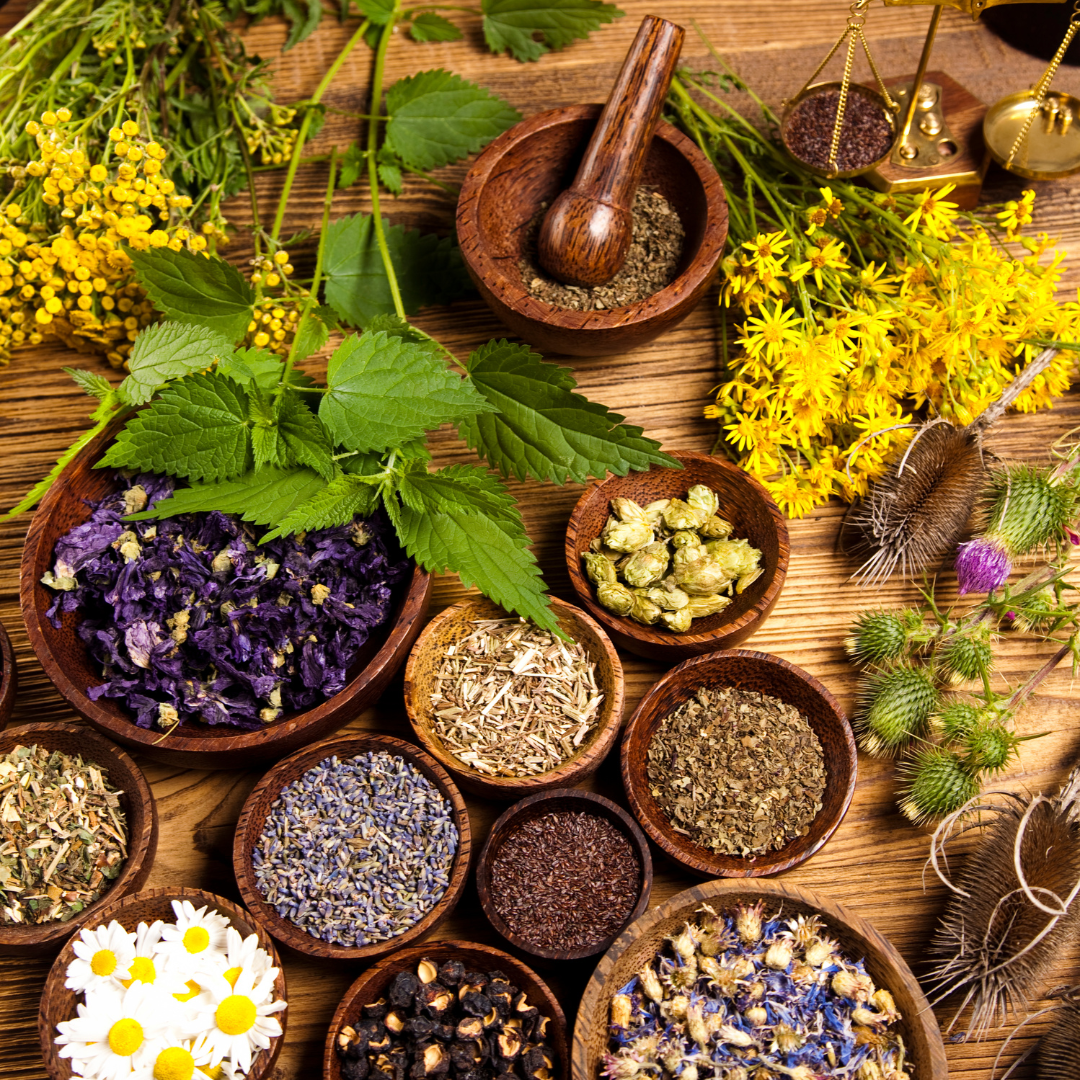
Exploring The Benefits Of Herbal Remedies
Herbal treatments use plants and plant extracts for their therapeutic characteristics. They are often referred to as herbal medicine or herbalism.
People from many countries have used these treatments for ages because nature is a rich source of therapeutic agents.
The advantages of herbal skin care products are vast, providing a holistic and kind solution to various skin issues. The following are some major advantages:
1. Herbal Remedies Are Natural And Gentle
Herbal medicines are made from plants, which makes them a natural and mild solution for skin care.
Compared to commercial skincare products, they frequently contain fewer harsh substances, synthetic chemicals, and scents.
Herbal medicines are excellent for sensitive skin, lowering the possibility of negative responses, irritability, and allergies.
2. Nourishing And Moisturizing
Many herbal medicines include vital vitamins, minerals, and nutrients that help hydrate and nourish the skin.
Aloe vera, chamomile, and calendula are among the ingredients that provide the skin with deep hydration and soothing properties.
These properties help to repair the skin's natural moisture barrier and encourage a healthy complexion.
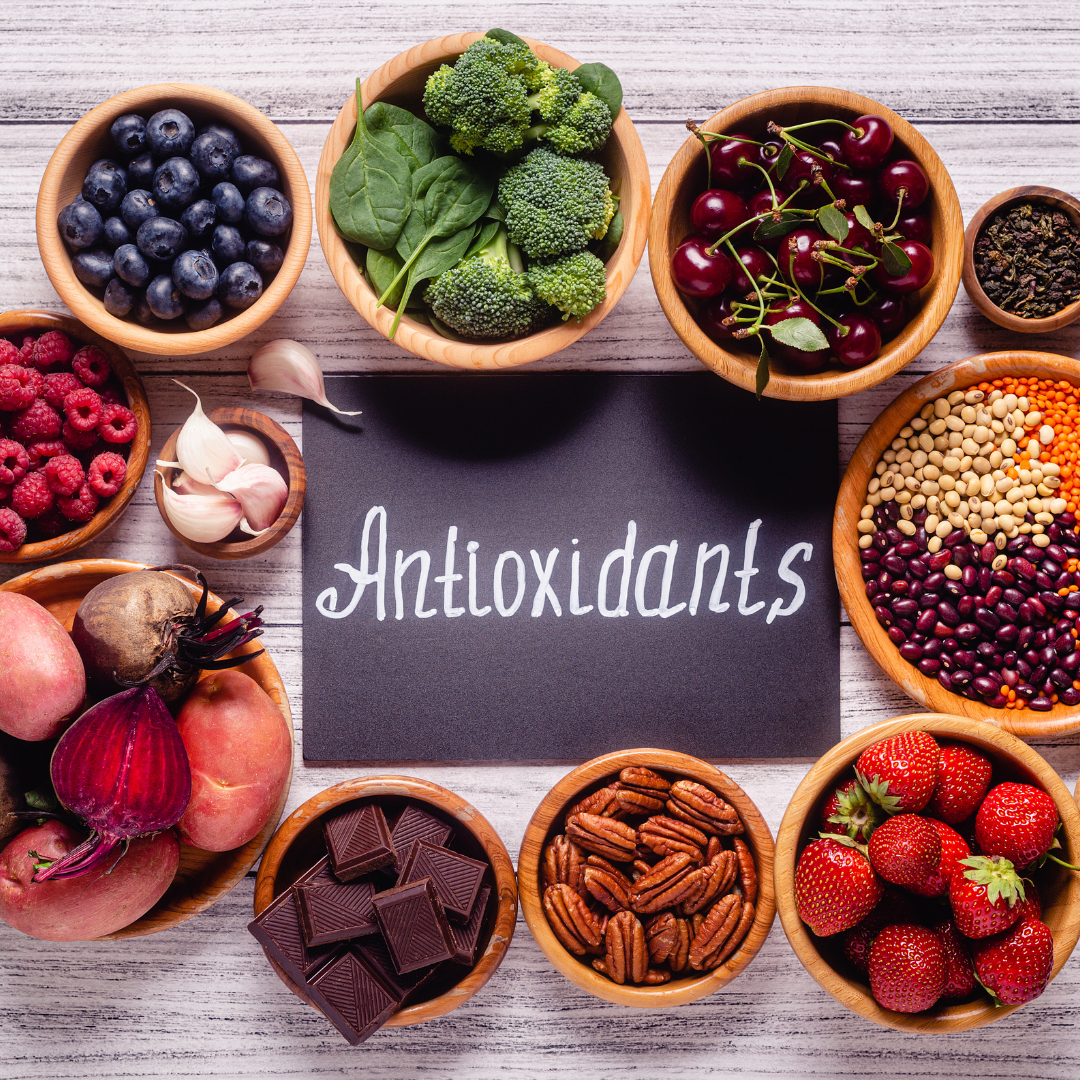
3. Antioxidant-Rich
Several herbal medicines are bursting with antioxidants, which fend off free radicals and shield the skin from harmful elements, including pollution and UV rays.
Herbs high in antioxidants include turmeric, green tea, and rosemary. These components can lessen the appearance of fine lines and wrinkles, delay the onset of aging, and encourage a young glow.
4. Soothing And Anti-Inflammatory
Many herbal medicines have anti-inflammatory characteristics that help calm irritated or inflamed skin.
Ingredients like chamomile, lavender, and witch hazel can reduce redness, irritation, and swelling related to acne, eczema, and sunburn.
5. Brightening And Rejuvenating
Some herbs can brighten and revive the skin. Grapefruit extract, licorice root, and lemon balm can all help lighten dark spots, even skin tone, and encourage a beautiful complexion.
These organic components are frequently employed in herbal medicines to brighten the skin and give it a youthful appearance.
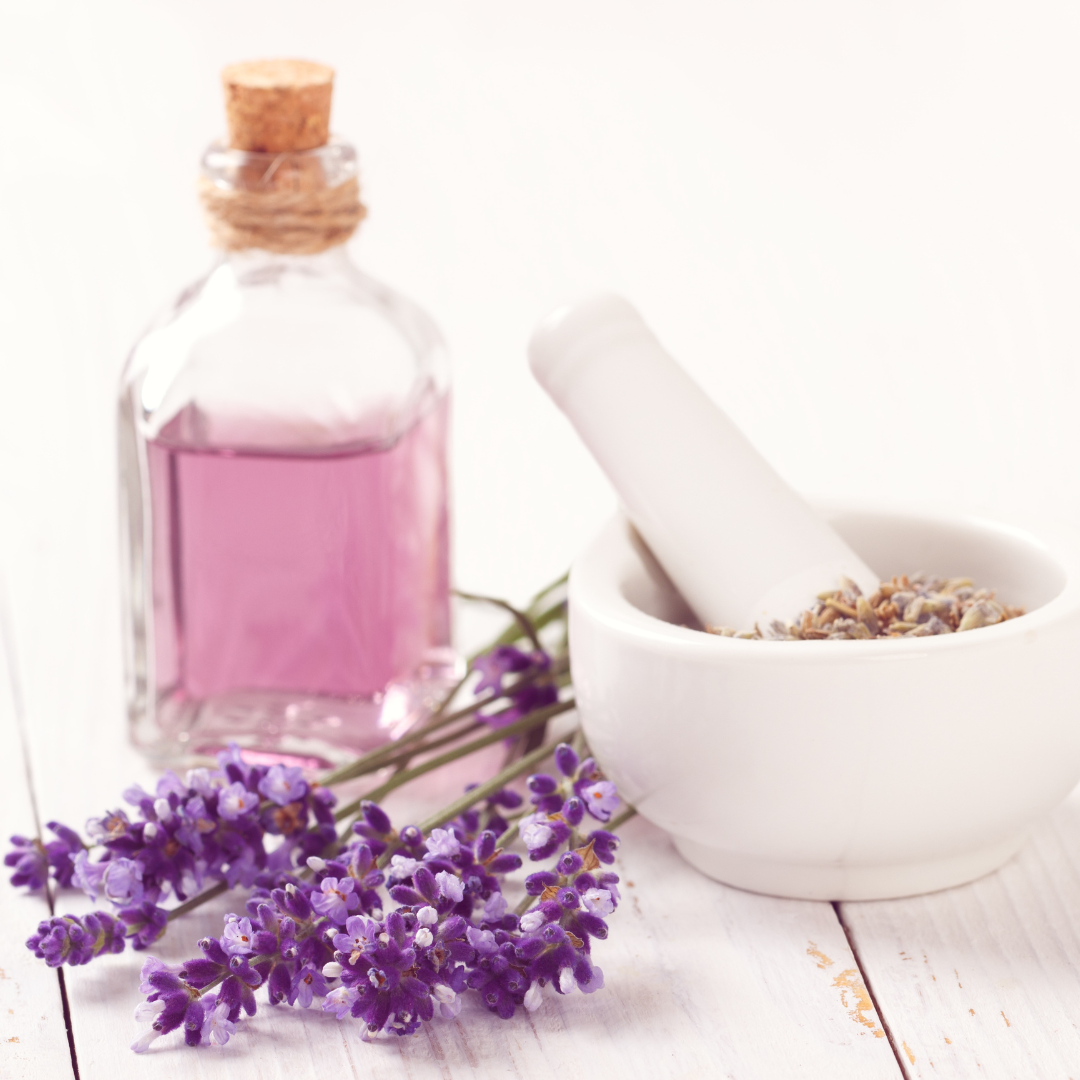
6. Aromatherapeutic Advantages
Aromatic herbs, commonly used in herbal treatments, have benefits beyond skin care. Herbs with calming and stress-relieving smells like lavender, rose, and chamomile encourage relaxation and general well-being.
7. Purifying And Detoxifying
Natural cleansing and detoxifying characteristics of herbal treatments can assist in cleansing the skin and removing pollutants.
Neem, tea tree oil, and witch hazel are ingredients with antibacterial and antimicrobial qualities that can help fight acne-causing germs and maintain clear skin.
8. Stabilizing And Controlling
Many herbal medicines stabilize and maintain the skin's natural processes. For instance, rosemary and yarrow are excellent for oily and mixed skin types since they can control sebum production.
Herbal medicines can alleviate excessive oiliness or dryness by fostering equilibrium, which results in a better complexion.
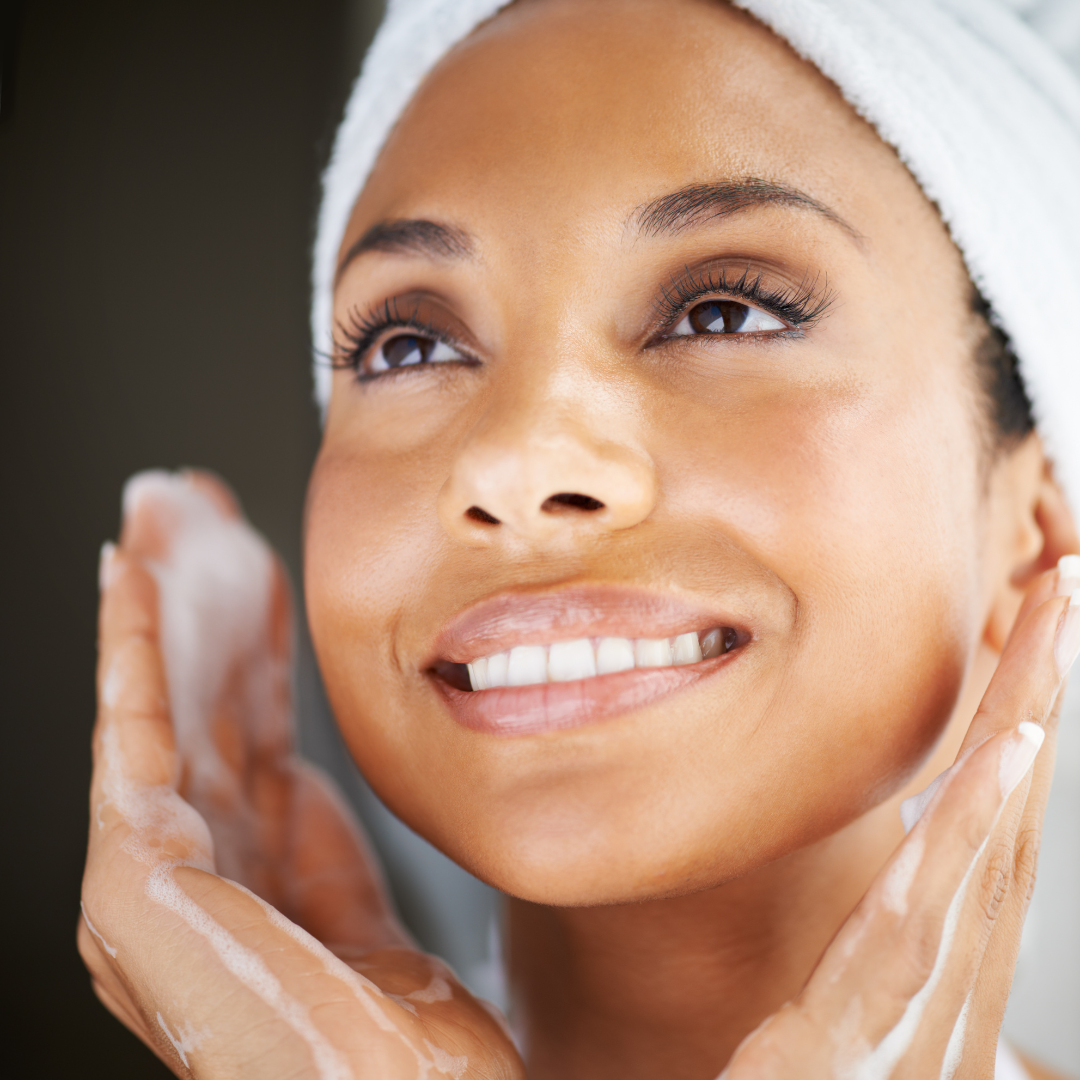
9. Gentle Exfoliation
Oats, rice flour, and ground almonds are herbal cures that work well as exfoliants. These mild exfoliants support a smoother, more refined skin texture by assisting in the removal of dead skin cells and unclogging pores.
Herbal exfoliators are often softer and less likely to irritate the skin than harsh chemical exfoliants.
10. Environmentally Friendly
Compared to conventional skincare treatments, herbal medicines frequently have a smaller environmental impact.
They are less likely to cause pollution or damage ecosystems because they are often derived from regenerative plant sources.
Using herbal medicines can support sustainability and a skincare regimen that is eco-friendly.
Although herbal medicines have many advantages, it's vital to remember that not everyone will benefit from them.
If you have any concerns or particular issues, it is advisable to perform a patch test and speak with a healthcare provider or herbalist. Some people may have allergies or sensitivities to certain plants.
Best Herbal Remedies For Skin Care
Numerous plants and botanicals have special benefits for treating various skin issues regarding herbal skincare solutions. The top herbal treatments and their specifics are listed below:
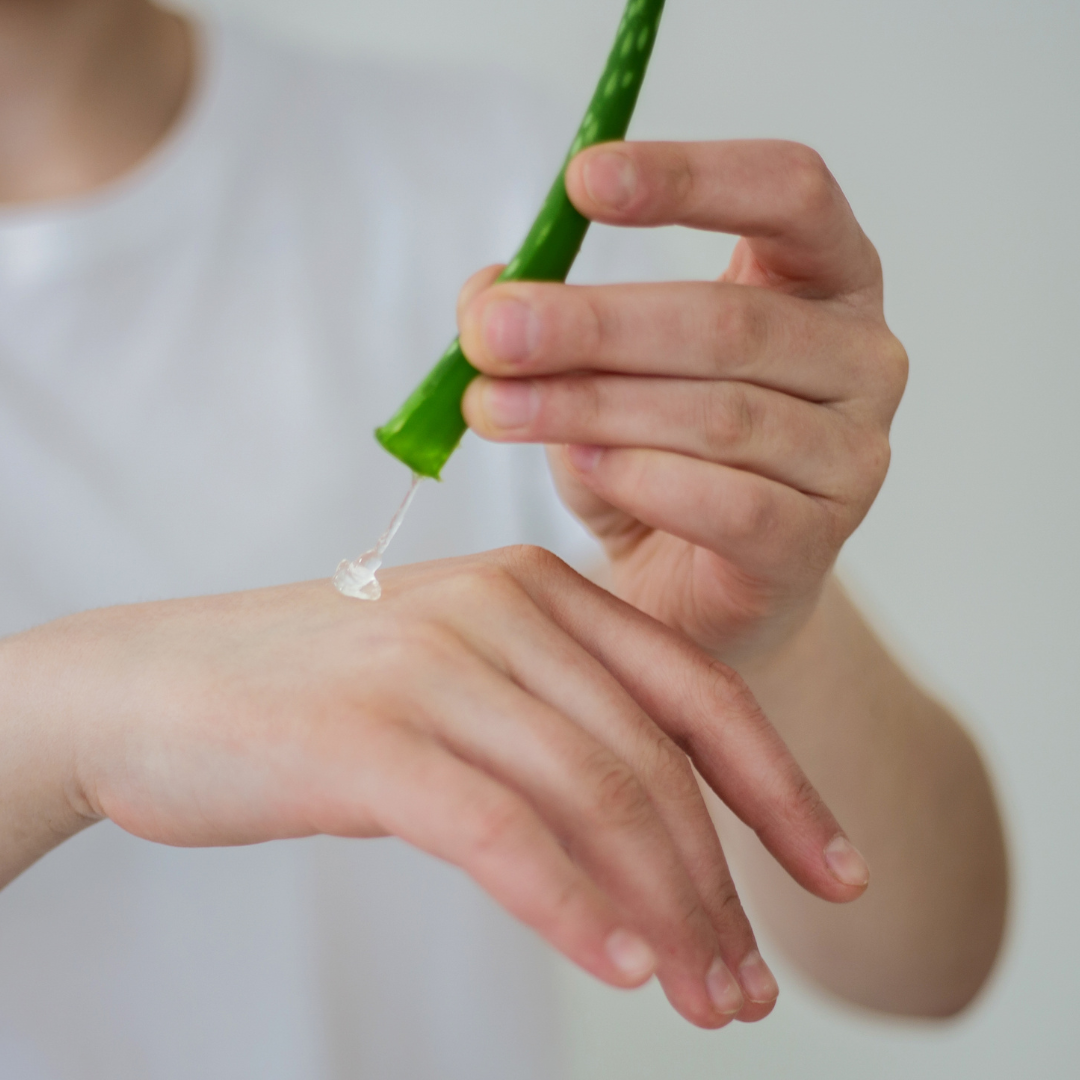
1. Aloe Vera
The adaptable herb aloe vera is well known for its wonderfully calming and healing powers. It also has several advantages for the skin because it contains important vitamins, minerals, and antioxidants.
The capacity of aloe vera gel to moisturize the skin, supply moisture, and prevent dryness is particularly well known. It has strong anti-inflammatory effects that help to reduce inflammation, swelling, and redness.
Aloe vera gel is popular for easing sunburns, reducing skin irritations, and calming acne-prone skin because it aids wound healing.
Aloe vera is a go-to treatment for nourishing and reviving the skin because of its all-natural and soothing composition.
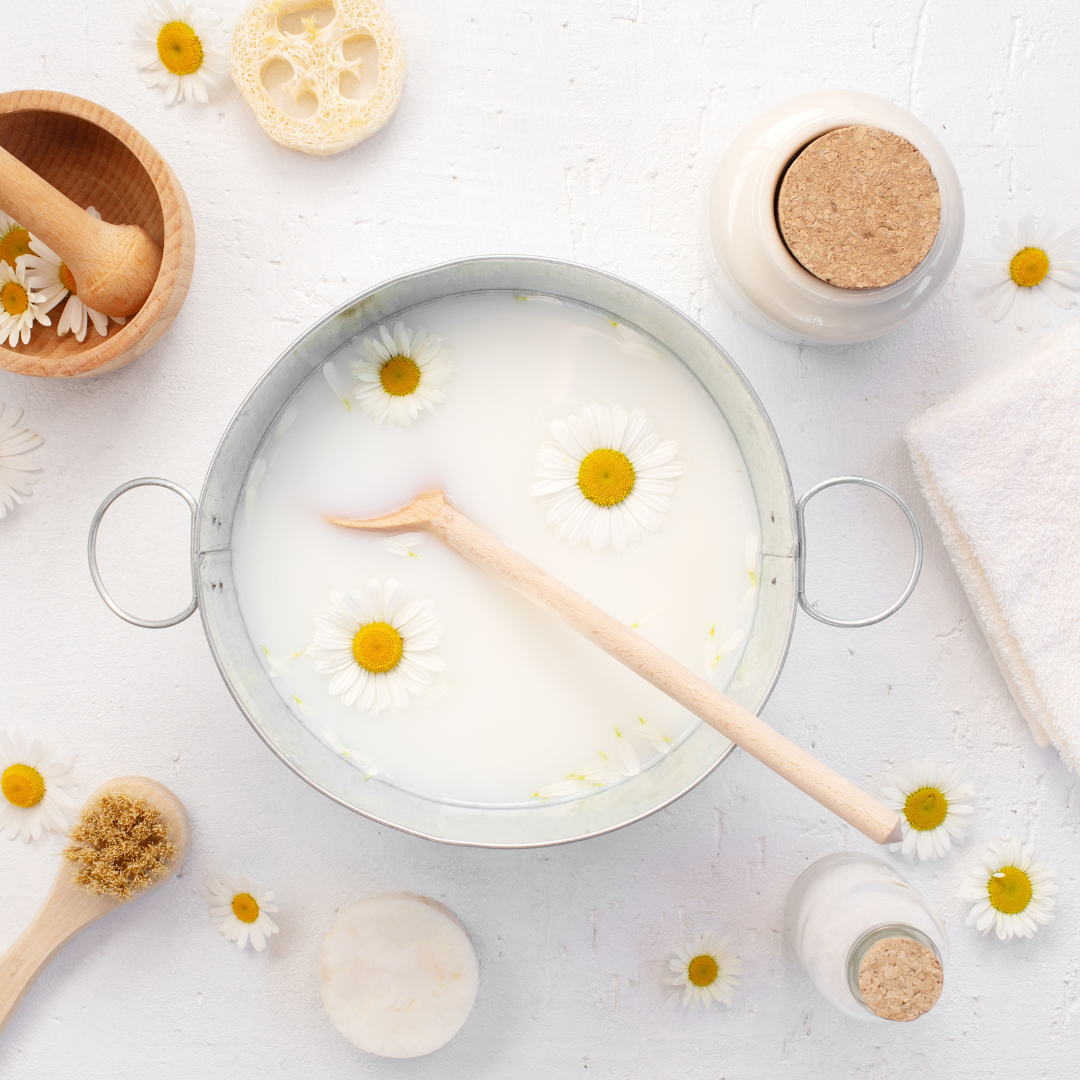
2. Chamomile
The popular herb chamomile is used for soothing and enhancing skin conditions because of its calming and anti-inflammatory effects.
People with eczema and rosacea can greatly benefit from it due to its extraordinary capacity to calm sensitive skin that has become irritated or inflamed.
Chamomile can provide relief and comfort and effectively reduce redness and inflammation.
Chamomile tea or infused chamomile water can be used in skincare regimens as a light toner or an ingredient in DIY skincare recipes. Their calming properties can help achieve a more even and serene complexion.
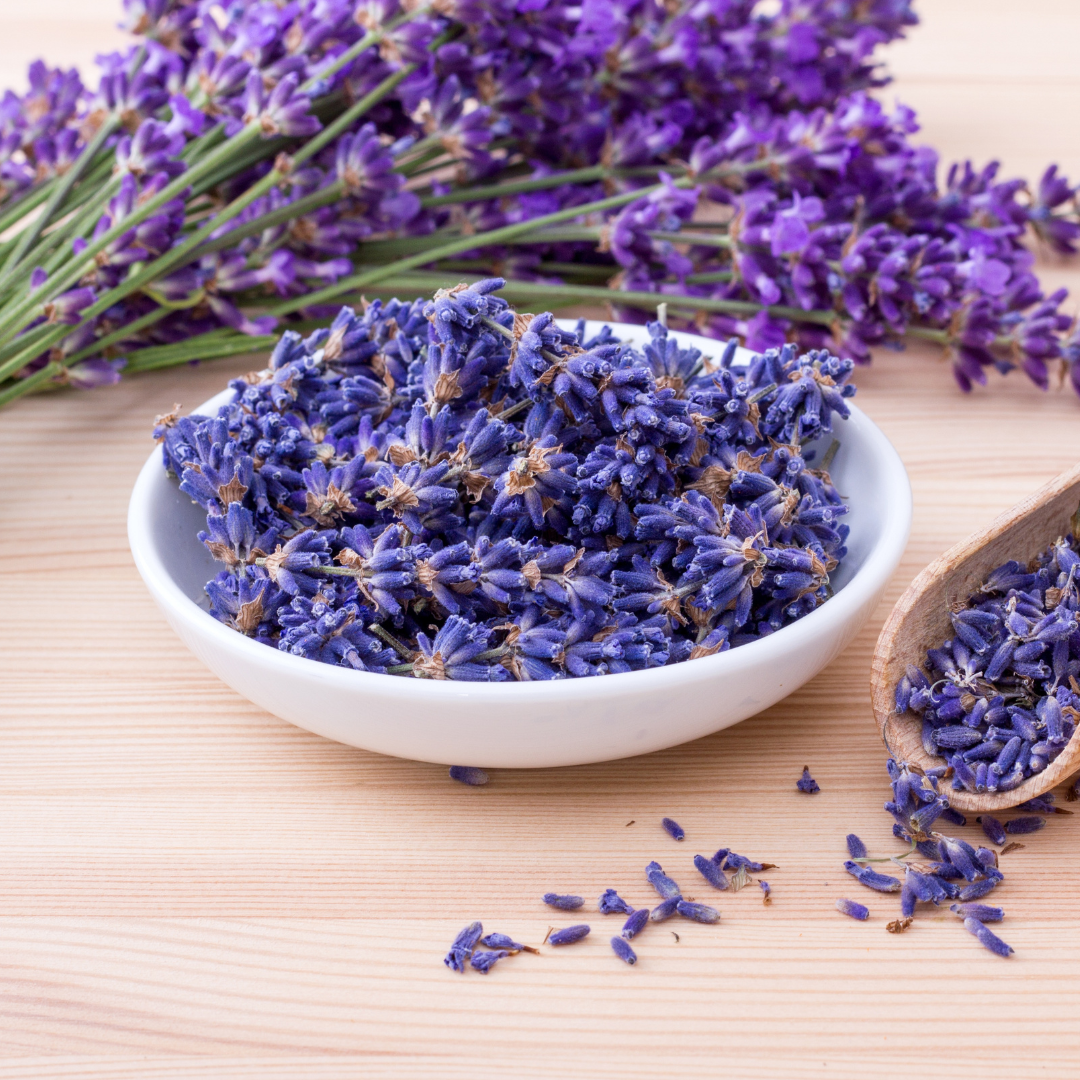
3. Lavender
Lavender is a multi-purpose herb with many advantageous effects on the skin. It is well known for its medicinal and relaxing products.
Lavender's antibacterial and anti-inflammatory properties benefit different skin types. Its perfume has a calming impact on the body and mind, making lavender oil or hydrosol suitable for encouraging relaxation.
When applied topically, lavender can reduce skin inflammation and help with acne, eczema, and sunburn.
Additionally, because of its inherent antibacterial qualities, it aids in the healing of small wounds and blemishes.
Incorporating lavender into skincare regimes can help create a calmer, healthier complexion and a pleasurable sensory experience.
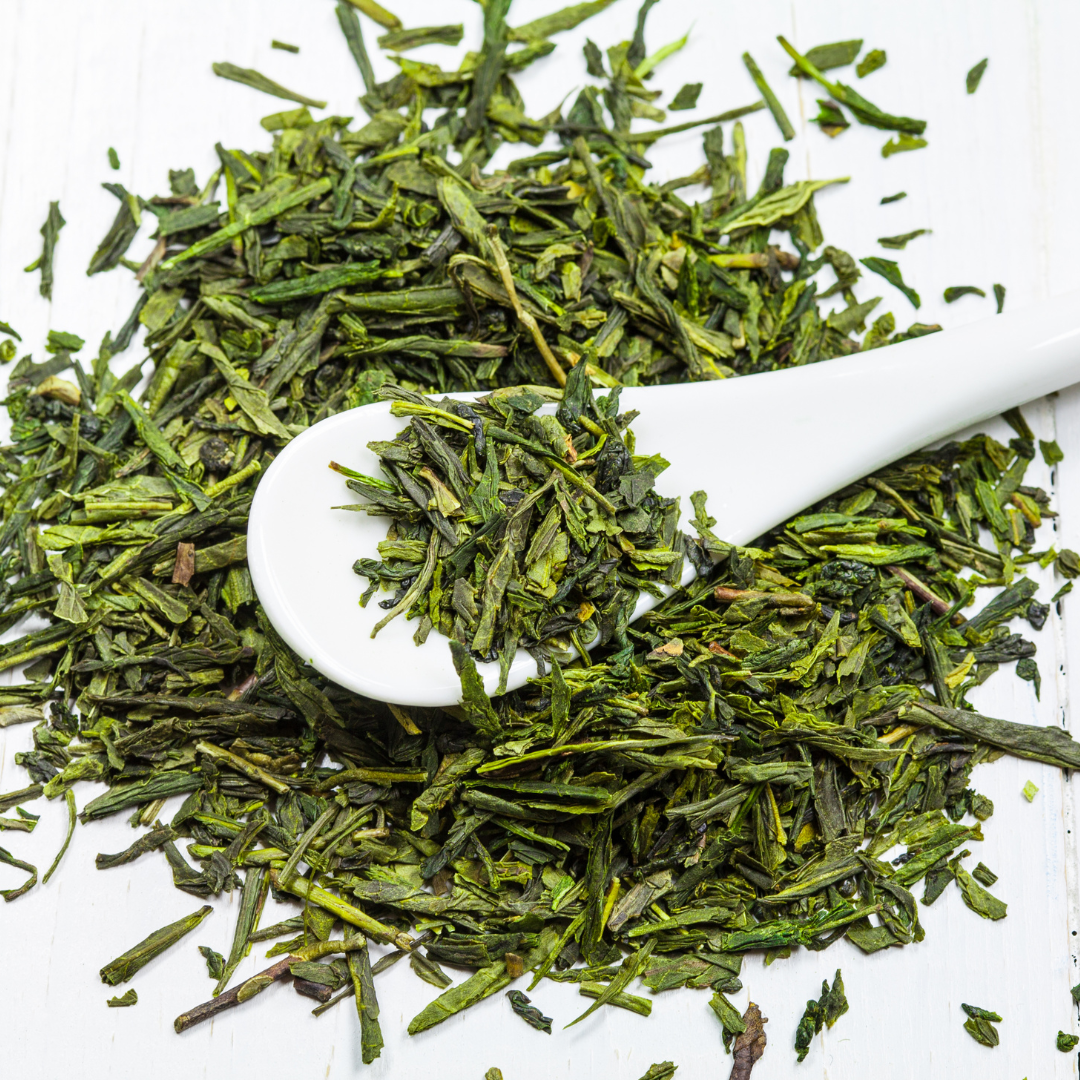
4. Green Tea For Skin Care
The extraordinary anti-aging properties of green tea for the skin are due to its high antioxidant content.
The high antioxidant content of this food neutralizes free radicals and dangerous molecules that can hurt the skin and hasten aging.
Green tea can help the skin feel younger and more vibrant when included in skincare regimens.
By using cooled green tea as a toner or selecting skincare products infused with green tea extract, you can effectively reduce inflammation, encourage a more even complexion, and energize the skin.
Green tea's potent antioxidants make it a helpful partner in seeking glowing, young-looking skin.
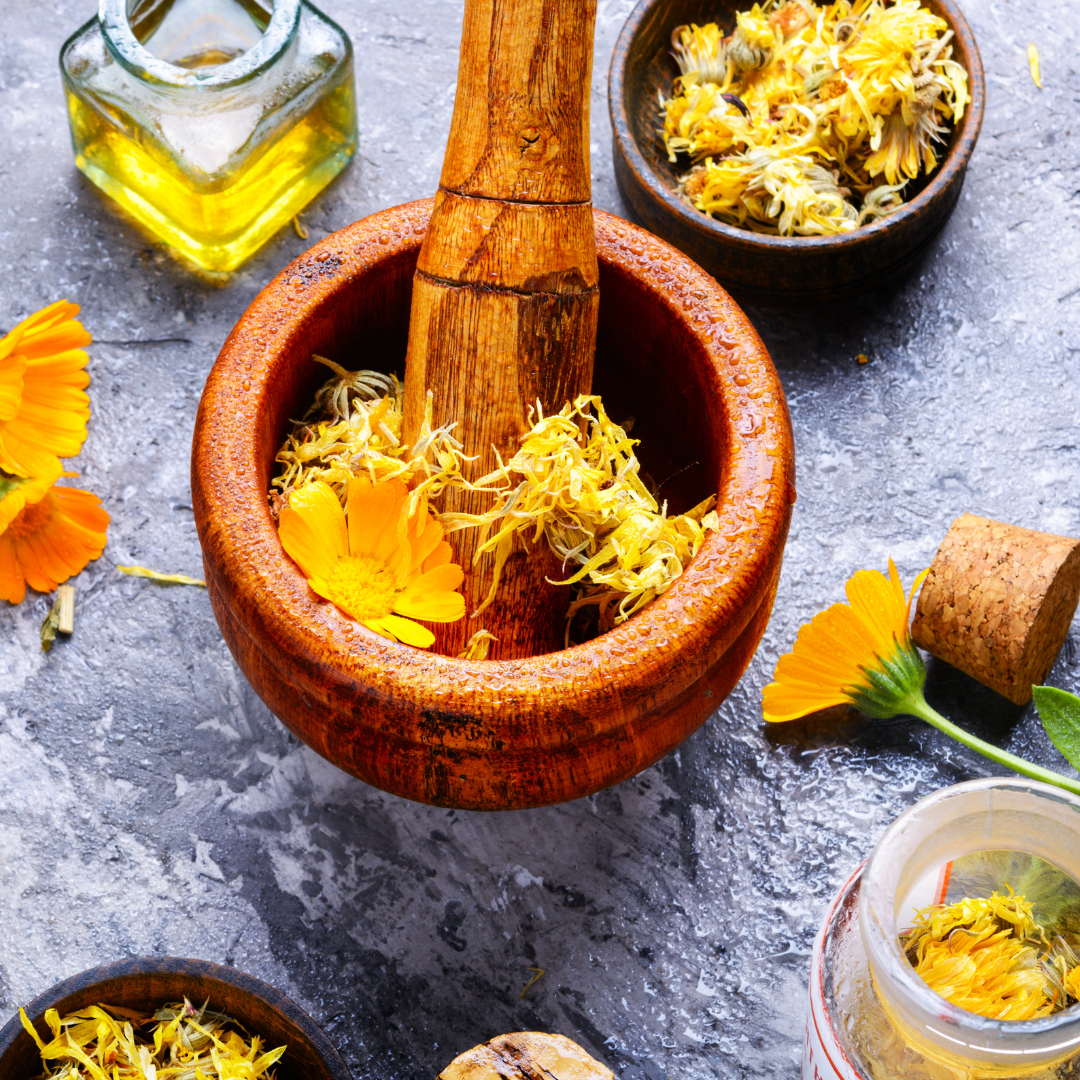
5. Calendula
Calendula, also called marigold, is a unique herb with calming and therapeutic qualities that make it extremely good for the skin. It is especially beneficial for dry, sensitive, or irritated skin types.
The skin can be moisturized topically using calendula oil or infused calendula water to provide much-needed moisture and relief.
Additionally, it is good at reducing discomfort and irritation brought on by skin diseases. Calendula also has natural healing capabilities that aid in healing minor wounds, burns, and rashes.
Calendula's calming and nourishing nature makes it a desirable ingredient in skincare products meant to refresh and soothe the skin. This plant also provides a natural cure for preserving healthy, bright skin.
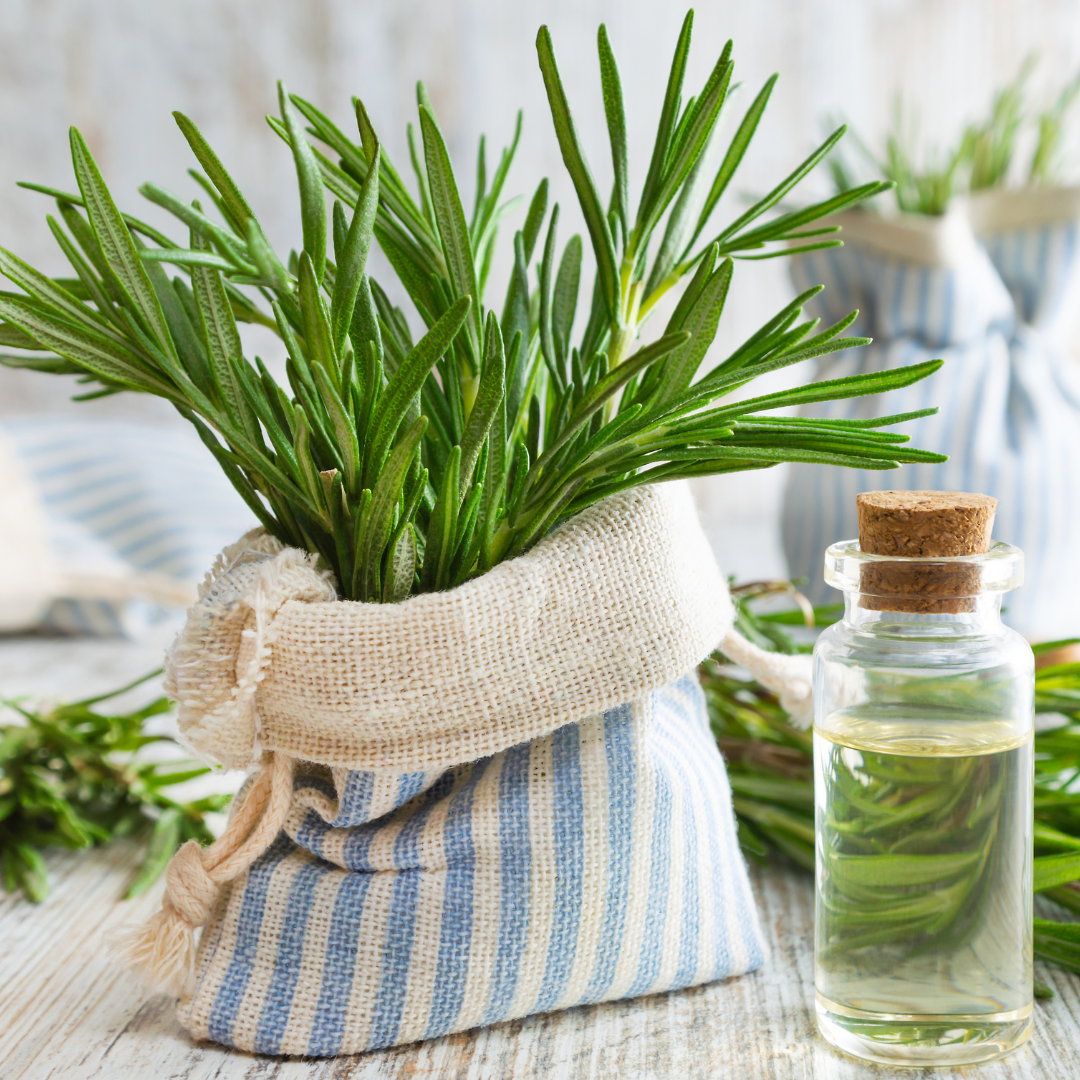
6. Rosemary
Rosemary is a fragrant herb with many health advantages. Its antioxidant, antibacterial, and toning characteristics make it an excellent choice for skincare.
Its capacity to enhance circulation aids in delivering nutrients and oxygen to the skin, fostering a healthy and youthful complexion.
Rosemary also has rejuvenating qualities that help to stimulate cell renewal and support a youthful appearance.
In addition, because of its antibacterial qualities, it is useful in battling germs that cause acne, which helps to stop outbreaks and maintain cleaner skin.
To reap rosemary's advantages, you can add extract or essential oil to homemade cleansers, toners, and masks.
In contrast, it can be used for a stimulating massage to energize the skin when diluted in carrier oils. This will further increase circulation.
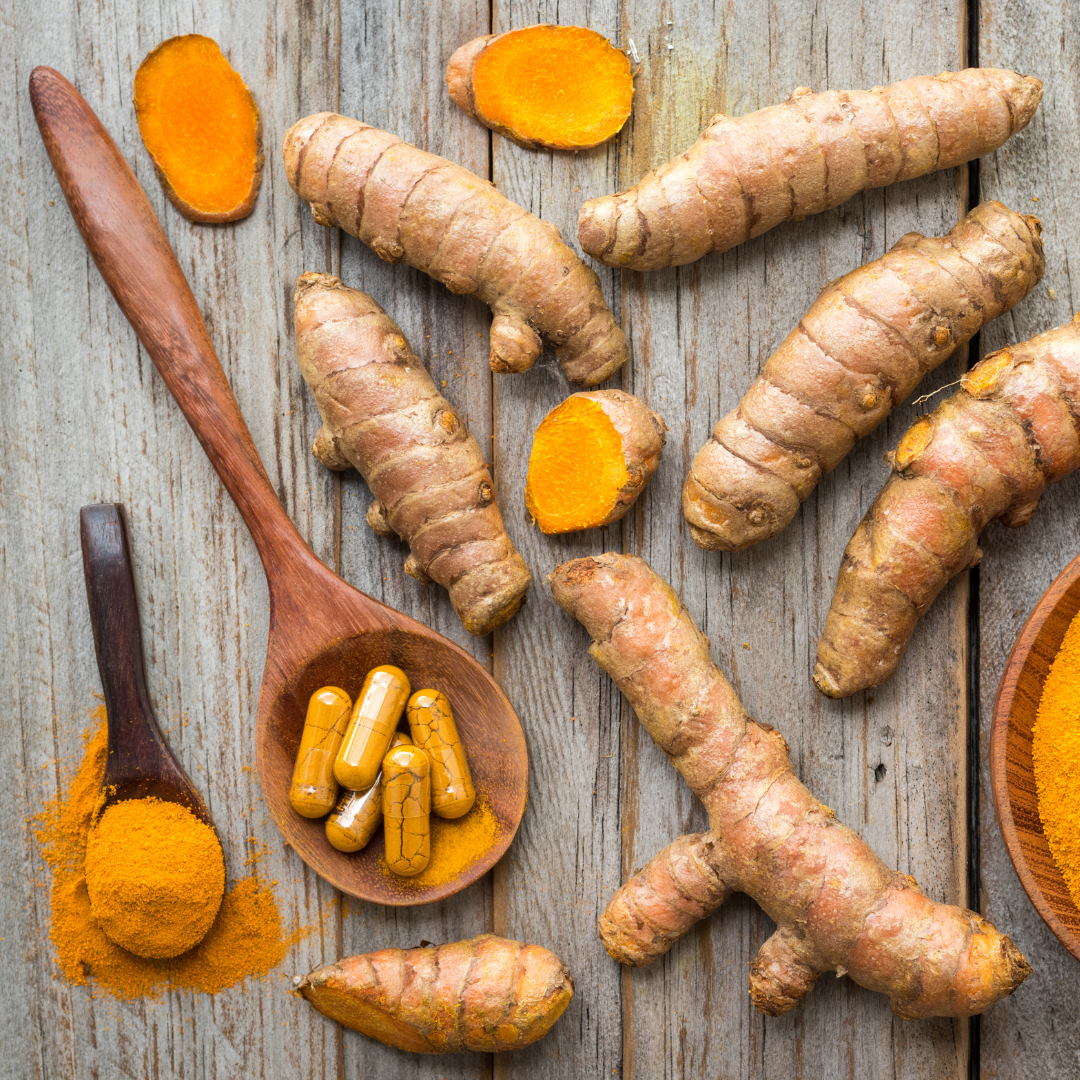
7. Turmeric
Turmeric is a favourite for skincare, a vivid spice known for its anti-inflammatory and brightening effects.
People with inflammatory skin problems like acne or rosacea can benefit from it due to its strong anti-inflammatory effects, which can help reduce redness and calm irritated skin.
Turmeric's inherent skin-lightening characteristics, which can help fade dark spots and hyperpigmentation and produce a more even skin tone, are thought to be responsible for this effect.
Turmeric can increase the skin's brightness and luminosity and encourage a healthy glow. It may be utilized in several ways, such as making nourishing and brightening face masks by combining turmeric powder with honey or yogurt.
Alternately, turmeric-infused oil mixes can be used for face massages, boosting the health of the skin and promoting circulation. Incorporating turmeric into one's skincare regimen can attain a more even, vivid complexion.
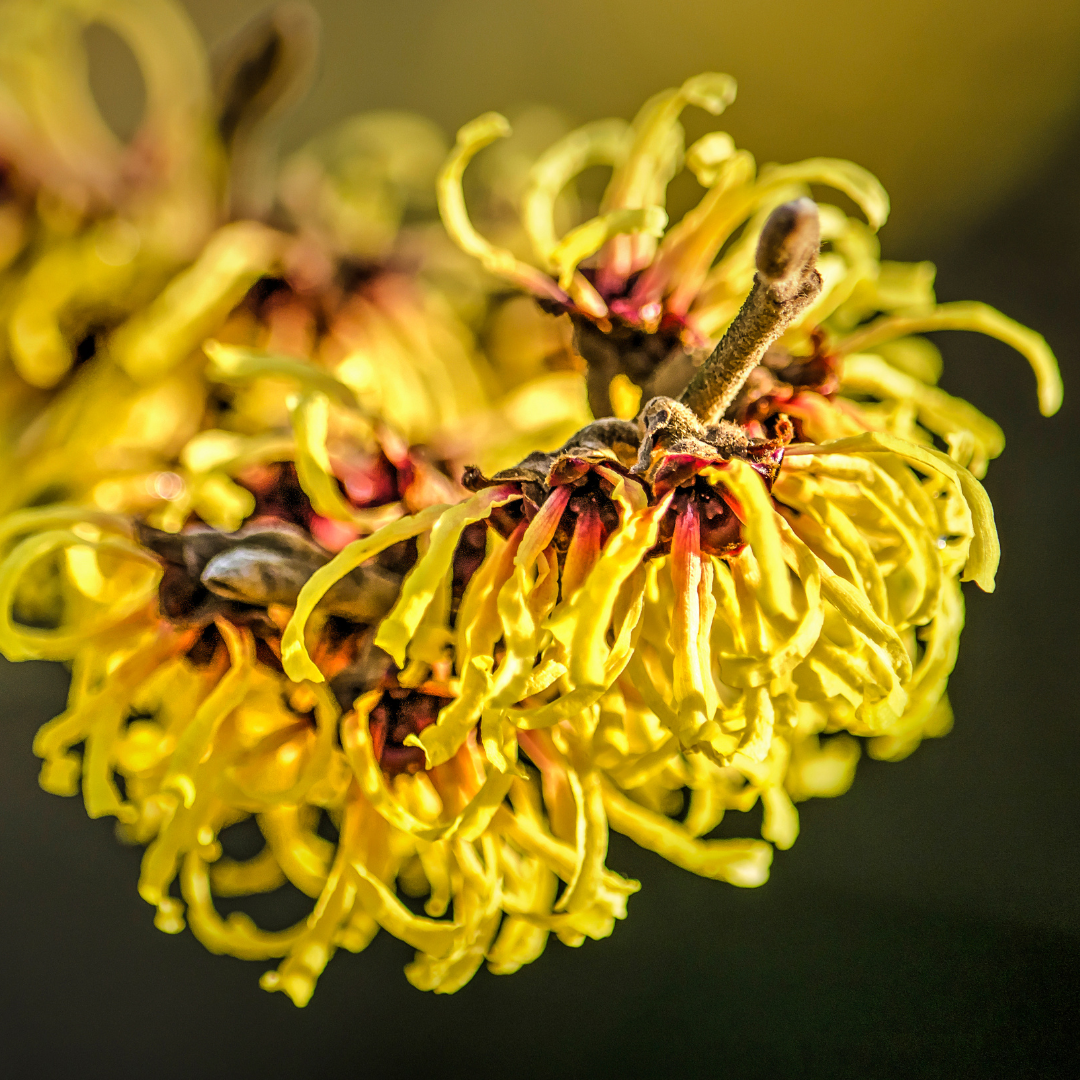
8. Witch Hazel
The natural astringent witch hazel has several advantageous effects on the skin. Its astringent characteristics tighten the skin and reduce the visibility of pores, resulting in a clearer complexion.
Witch hazel also has anti-inflammatory qualities, which makes it useful for minimizing skin irritability and redness. Because of this, people with sensitive skin or acne may find it particularly helpful.
Witch hazel can relieve discomfort and encourage healthier-looking skin by calming and soothing inflamed skin. As a calming agent for irritated and itchy skin, it can also lessen the agony from insect bites.
Witch hazel water or extract can be included in skincare regimes when used topically on the skin after cleansing.
Additionally, it can be included in homemade skincare products like serums or facial masks. By utilizing the power of witch hazel, people can create a tighter, clearer, and more lovely complexion.
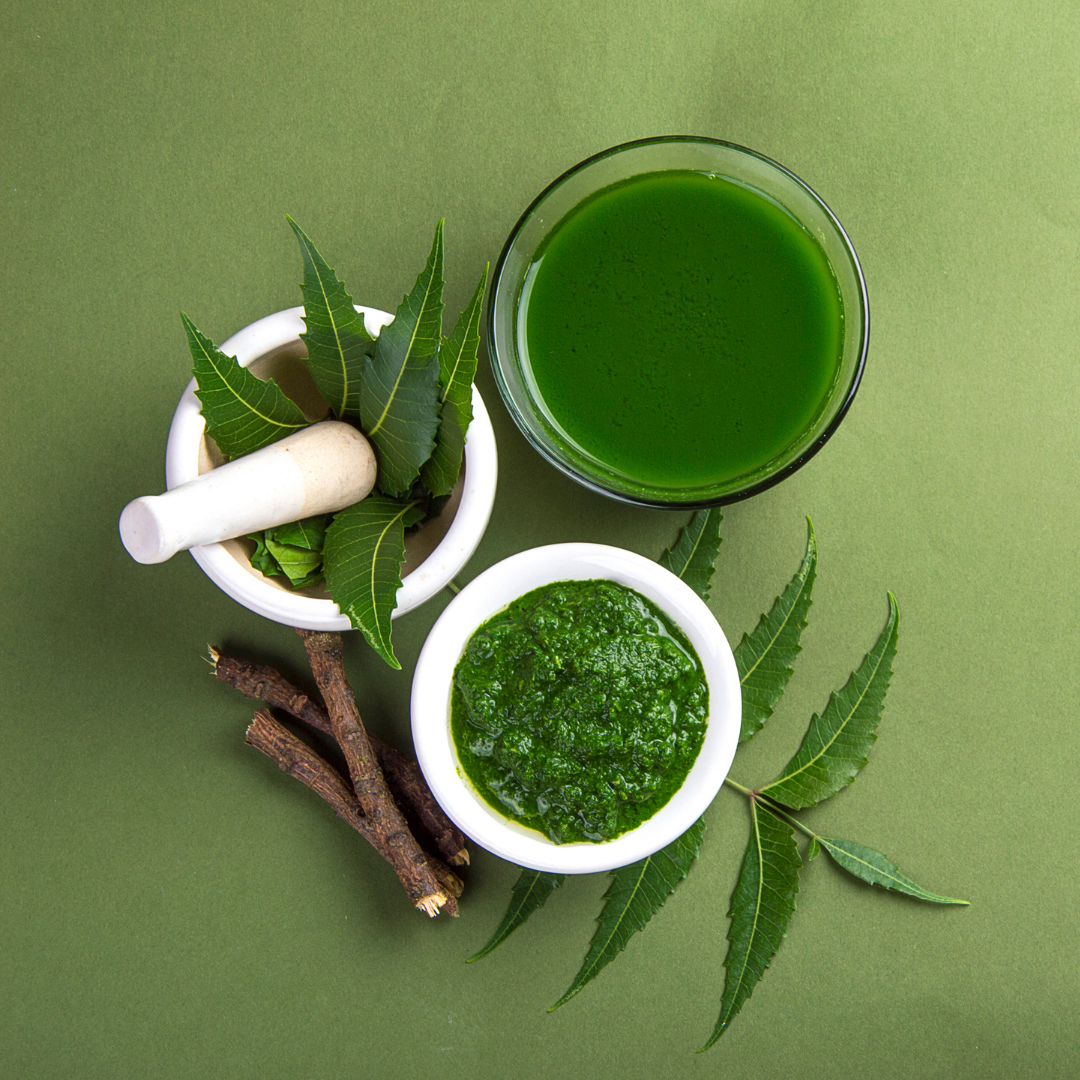
9. Neem
Neem is a potent herb with antibacterial and anti-inflammatory characteristics, making it extremely advantageous for skin prone to acne and other problems.
Its capacity to combat germs and other microbes aids skin purification, lowering the likelihood of outbreaks and fostering a brighter complexion.
Neem is also known to control sebum production, reducing overly oily skin that can aggravate acne. Its anti-inflammatory qualities can also calm and soothe skin irritability, reducing discomfort and redness.
Neem oil or leaf extract can be used diluted to be mild on the skin or included in skincare products designed specifically to treat acne.
Neem can be part of a skincare regimen to treat acne issues, encourage a healthy skin balance, and provide several other benefits.
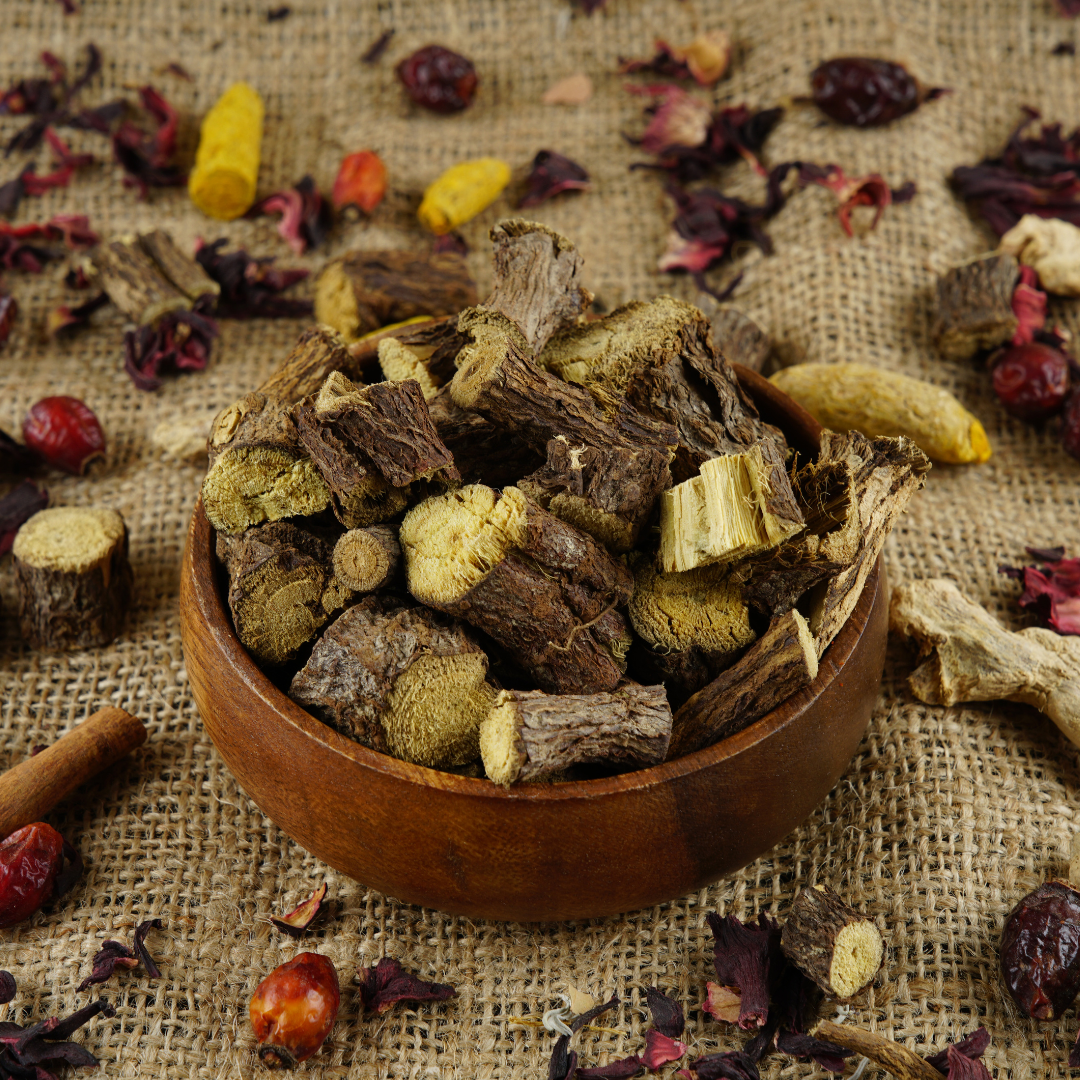
10. Licorice Root
Licorice root is useful in cosmetics because of its astringent and calming effects. It is advantageous for people looking to address worries about hyperpigmentation because it is acknowledged for its capacity to lighten dark areas.
Licorice root can help balance skin tone and achieve a more uniform complexion. Its anti-inflammatory qualities can also reduce redness, making it appropriate for sensitive or irritated skin.
Licorice root extract is frequently present in serums, creams, or masks created especially to treat hyperpigmentation or care for sensitive skin's needs.
People can use licorice root extract's brightening properties, obtain a more even skin tone, and have a relaxing and serene complexion by using daily skincare products with licorice root extract.
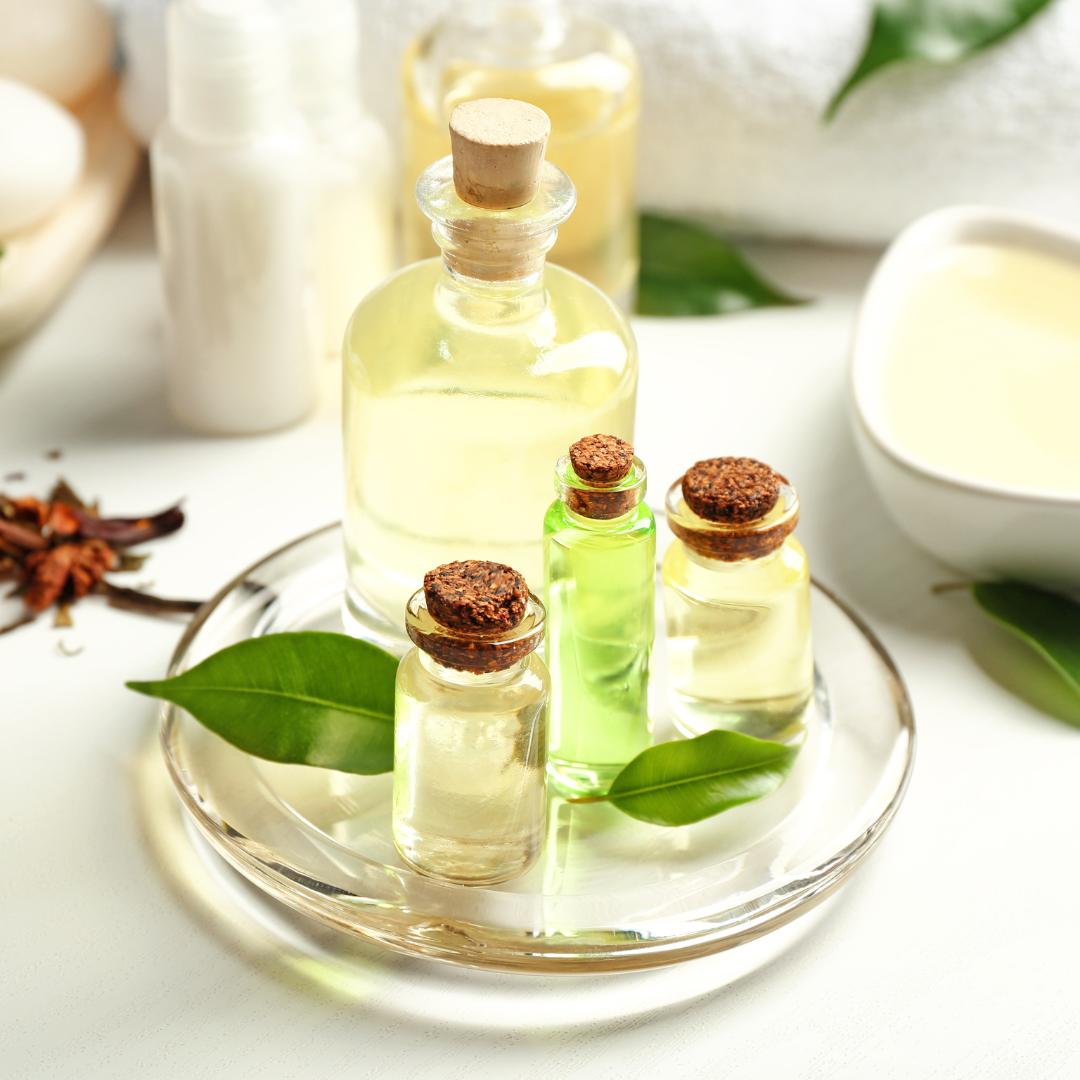
11. Tea Tree Oil
Tea tree oil, well-known for its antibacterial and anti-inflammatory characteristics, is an effective treatment for acne-prone skin.
Due to its innate capacity to fight microorganisms, tea tree oil helps reduce breakouts and halt the development of new blemishes. It can also reduce oil overproduction, which frequently contributes to acne.
Tea tree oil can be topically administered when diluted as a spot therapy for specific zits or trouble spots.
Its anti-inflammatory, anti-redness, and anti-swelling effects help minimize acne-related inflammation and redness.
In addition, tea tree oil can be included in skincare products like cleansers, toners, or serums to continue assisting with acne treatment.
Tea tree oil must be carefully diluted before being applied to the skin to prevent any potential irritation.
People can benefit from tea tree oil's antibacterial and anti-inflammatory characteristics by including it in their skincare regimen to encourage brighter, younger-looking skin.
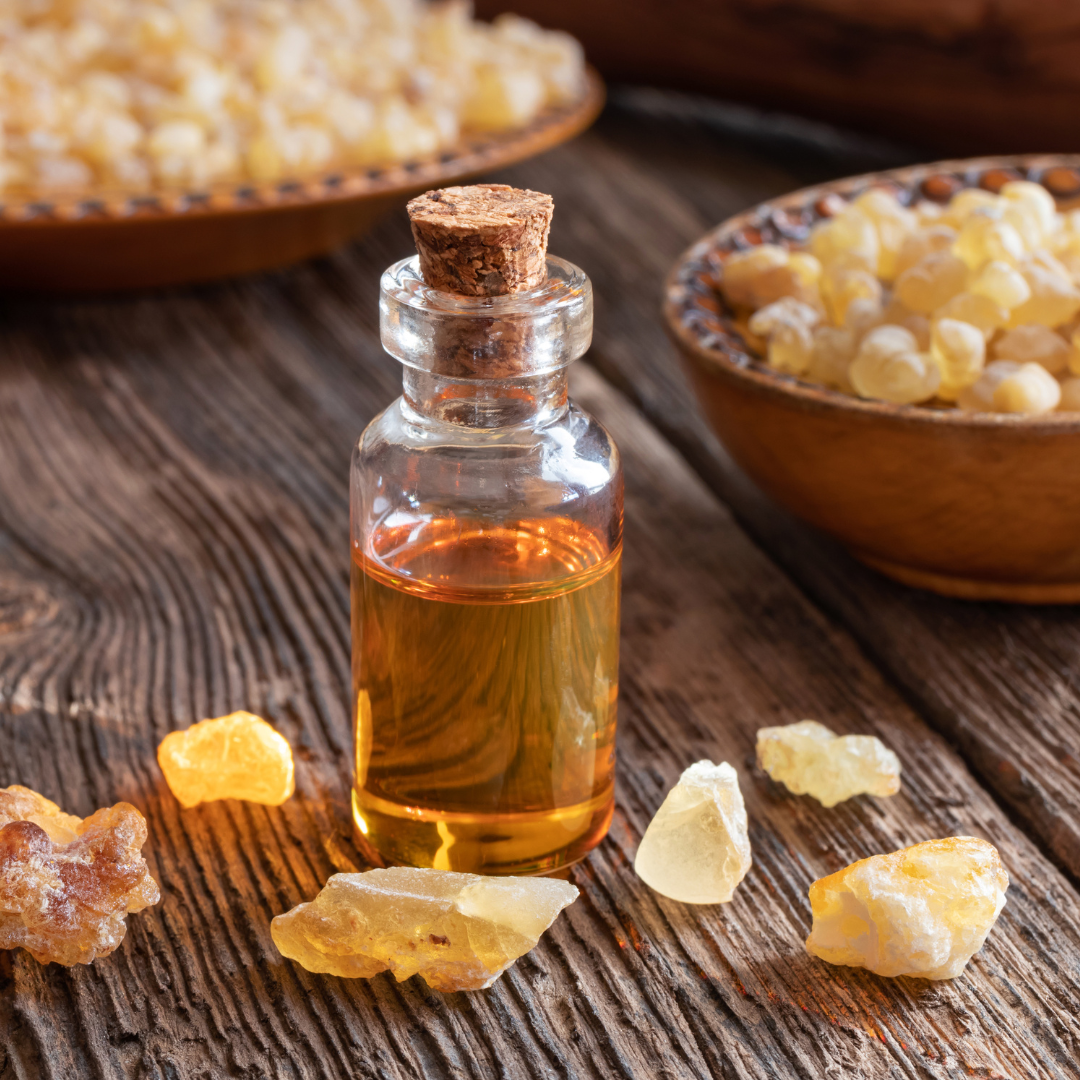
12. Frankincense
The revered essential oil of frankincense, with its well-known revitalizing and toning qualities, is an excellent complement to beauty regimens.
It helps to reduce the appearance of fine lines and wrinkles by encouraging the regeneration of skin cells, achieving a more youthful appearance.
Frankincense oil improves skin texture, resulting in smoother and suppler skin. Additionally, it possesses astringent qualities that may aid in firming and tightening the skin.
The fragrant advantages of frankincense oil can produce a peaceful and relaxing skincare experience. It can also have a calming influence on the mind and emotions.
Frankincense can be added to face oils or facial steams to improve overall skincare benefits.
By incorporating it into a skincare routine, individuals can take advantage of frankincense's regenerating properties and partake in an opulent and reviving self-care ritual.
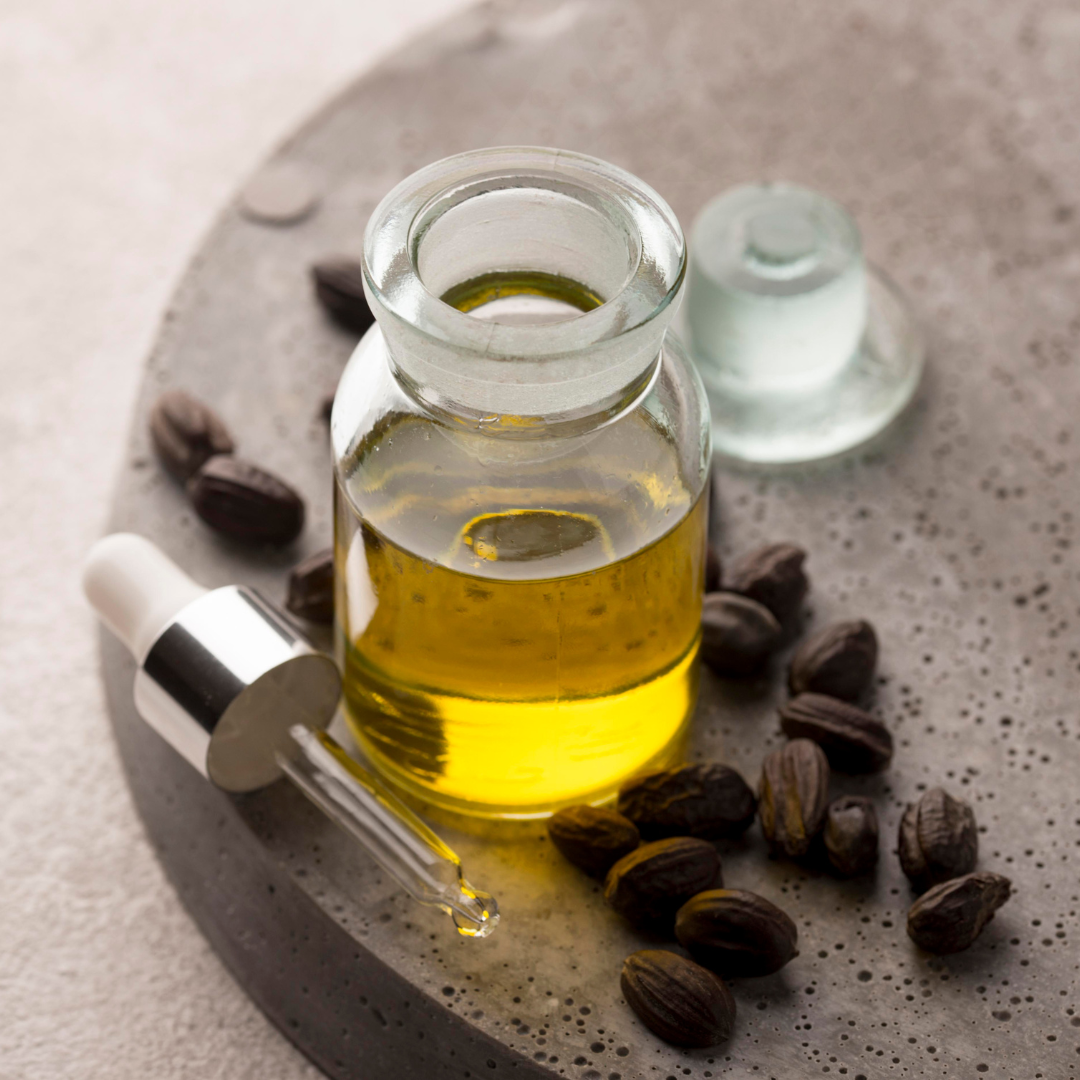
13. Jojoba Oil
Jojoba oil is a flexible and highly beneficial oil for skin care since it closely resembles the natural sebum our skin produces.
As a result of its resemblance to sebum, it works wonders as a moisturizer on all skin types because it effectively moisturizes the skin without leaving behind a greasy or heavy residue.
Due to its special chemical makeup, jojoba oil suits dry and oily skin types. It balances oil production, aiding in sebum production regulation, avoiding overproduction of oil and fostering a more even complexion.
Jojoba oil's non-comedogenic properties—which prevent it from clogging pores—are among its many surprising advantages.
Because it moisturizes without triggering outbreaks, it is a good option for people with sensitive or acne-prone skin.
Jojoba oil can be used as a standalone face or body moisturizer or combined with other ingredients to create various skincare products, including cleansers, serums, and masks.
Its adaptability and nourishing qualities make it a useful addition to any skincare regimen, encouraging healthy, hydrated, and balanced skin.
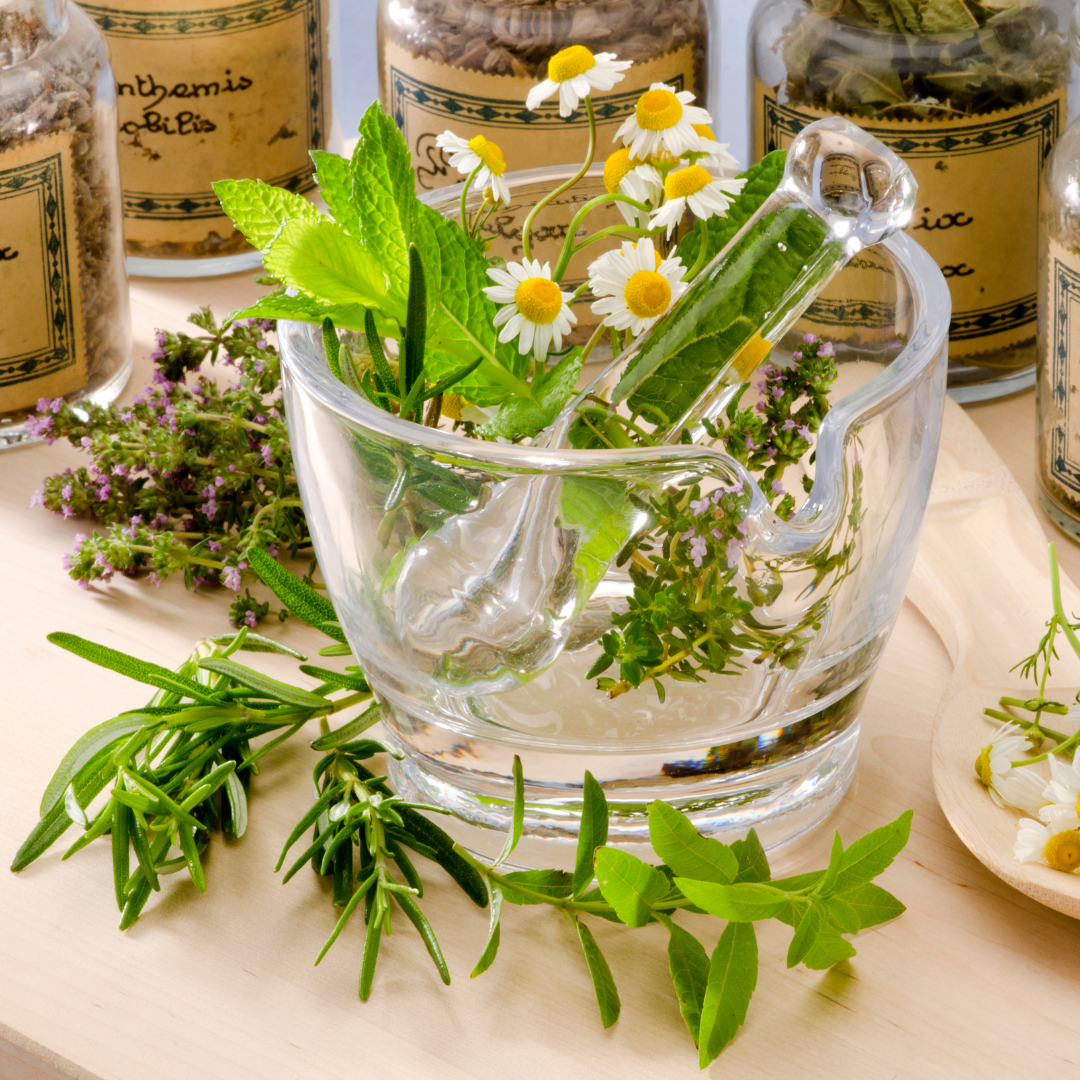
Conclusion
In conclusion, herbal treatments' positive effects on the skin have been praised. Their organic qualities give a natural, holistic approach to skincare that offers nourishment, calming comfort, and renewal.
Each herbal medicine has its distinct advantages, whether it be the calming effects of chamomile, the calming effects of aloe vera, or the antioxidant-rich features of green tea.
Incorporating herbal treatments into your skincare routine can promote a healthier and more vibrant complexion.
Acknowledging the power of nature and utilizing the wide variety of readily available herbal therapies is a more natural, friendly, and efficient way to get beautiful and vibrant skin.
I trust you enjoyed this article on the Best Herbal Remedies For Skin Care. Please stay tuned for more blog posts soon. Take care!
JeannetteZ
>>>Please click here to read my all-inclusive article about A Comprehensive Guide To Healing Naturally<<<
>>>Are you interested in Natural Healing through Herbs? Please click here for my #1 Recommendation<<<
Your Opinion Is Important To Me
Do you have thoughts, ideas, or questions? I would love to hear from you. Please leave your questions, experiences, and remarks about the Best Herbal Remedies For Skin Care article in the comments below. You can also reach me by email at Jeannette@Close-To-Nature.org.
Disclosure
This post may contain affiliate links. As an Amazon Associate and other affiliate programs, I earn from qualifying purchases at no extra cost to you. Please read my full affiliate disclosure.
You might also enjoy these blog posts:
Best Naturopathic Remedies For Allergies
Best Ayurvedic Herbs For Digestion
Best Traditional Chinese Medicine For Natural Healing
Best Natural Therapies For Physical Well-Being
Best Steps To Grow Turnips In Containers

